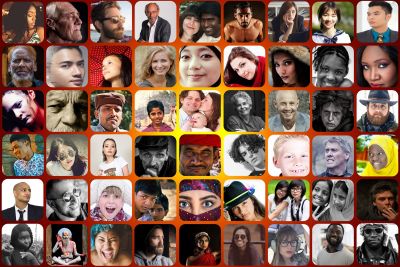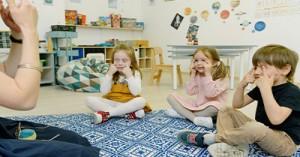As educators, we need to incorporate cultural celebrations within the setting in a sensitive and respectful manner by avoiding cultural tokenism - which is the act of making a small minimal effort towards something.
What Is Cultural Tokenism
Cultural tokenism occurs when aspects of cultures are acknowledged inadequately or because we have to. Some things to be aware of, include:
- Placing cultural artifacts on display without knowing or providing children with information about the item’s heritage or significance. For example, displaying an Aboriginal or Torres Strait Islander cultural artifact that doesn’t represent the cultures of the Aboriginal or Torres Strait Islander people within your local area, or using this item to represent all Aboriginal and Torres Strait Islander cultures.
- Setting specific days for specific cultures and Celebrating a cultural event in a superficial fashion or using the event as the only form of exposure to that culture. For example, celebrating Chinese New Year for one day and not exploring other aspects of Chinese culture in day-to-day practices.
- Using cultural attire or traditional foods as the only way of teaching about cultural diversity.
- Food - While exploring different types of food is a useful starting point for teaching about diversity, respect for cultural differences should extend beyond an appreciation of different foods.
- Clothes - It’s also important to be cautious when using different forms of cultural dress, as wearing traditional attire as a ‘costume’ can be offensive to people who wear it as part of their cultural identity.
- Having a sign on the door that says Welcome! in many languages, then have staff rolling their eyes when someone from another culture or race walks through the door.
- Displaying posters of cultural groups, just for the sake of it.
Avoiding Cultural Tokenism
It is important to acknowledge diversity and cultural differences throughout the program and avoid cultural tokenism.
When working with a group of children there may be a number of children from a variety of backgrounds and cultures. Incorporate all cultures rather than focusing on each one individually. For example, when talking about where we come from include all children; such as Tommy was born in Western Australia on a big farm, Houng was born in Vietnam in the country and Maria was born in Italy in a big city.
There are many strategies that can be implemented to acknowledge culture respectfully. Some of these include:
- Providing opportunities for children to participate in ‘open-ended‘ celebration activities. For example - items can be added to a collage table to enable children who participate in Easter to create Easter baskets (if they choose to do so). For those children who do not celebrate Easter the same materials could be used as part of a general construction experience.
- Ensuring that the same amount of time and energy is dedicated to All celebrations.
- Inviting Educators and families to share their own personal experiences of celebrations.
- Ensuring that resources such as picture story books, images, and music are reflective of contemporary celebrations which children can relate to.
- Ensuring that families who do not wish to be involved in celebrations have options for ‘opting out’.
Celebrating Cultures Respectfully Within The Service
Educators can play an important role in facilitating a child-centered celebration and this can be done in several ways:
- Ensuring children have the agency to make choices about the celebrations they would like to participate in.
- Engaging families to give advice on customs.
- Encouraging and supporting family members to be involved in sharing their customs and celebrations with your service.
- Ensuring that children have the resources and time necessary to be able to celebrate effectively.
- Creating an awareness of the celebration amongst the rest of the group.
- Notifying the wider child care community about the celebration. For example, taking photos to display on the service notice board, or displaying children’s artwork and drawings about the celebration
- Providing young children and toddlers with materials which reflect a significant event or celebration which they have recently participated in.
Australia is made up of many different cultures since we are a multicultural society. Children need to be made aware of the similarities and differences between cultures and show respect and consideration for diversity and as Educators, it's our duty to make children aware. Let's be considerate and sensitive and show inclusive practices within our setting for all cultures within our community and be role models to the children within our care.
References:
GlobalKidsOz, Tokenism
Gowrie Viictoria, Exploring Celebrations In Children's Services(2012)
ACECQA, Genuine Celebrations Cultural Experiences(2010)







 As an Educator in Australia, your pay rate falls under the Children’s Services Award 2010. This award states the minimum amount that an employer can
As an Educator in Australia, your pay rate falls under the Children’s Services Award 2010. This award states the minimum amount that an employer can When working as a qualified Early Childhood Teacher (with a university degree) within a service, your rate of pay will come from the Educational Services
When working as a qualified Early Childhood Teacher (with a university degree) within a service, your rate of pay will come from the Educational Services When working as a Diploma Qualified Educator your pay rate is from the Children's Services Award 2010. This Award states your minimum rate of pay
When working as a Diploma Qualified Educator your pay rate is from the Children's Services Award 2010. This Award states your minimum rate of pay When working as a Cert 3 Qualified Educator, your pay rate is from the Children's Services Award 2010. This Award states your minimum rate of
When working as a Cert 3 Qualified Educator, your pay rate is from the Children's Services Award 2010. This Award states your minimum rate of Educational Leaders play a crucial role in their early childhood service by ensuring that the educational program aligns with best practices and supports the holistic
Educational Leaders play a crucial role in their early childhood service by ensuring that the educational program aligns with best practices and supports the holistic In early childhood education and care, ratios are more than a technicality—they are a frontline safeguard. Every child deserves responsive supervision, emotional connection, and developmental
In early childhood education and care, ratios are more than a technicality—they are a frontline safeguard. Every child deserves responsive supervision, emotional connection, and developmental With the new national child safety reforms kicking in on 1 September 2025, early childhood services like yours have a real opportunity to lead the
With the new national child safety reforms kicking in on 1 September 2025, early childhood services like yours have a real opportunity to lead the Here’s a comprehensive Mobile Phone and Smart Watch Policy tailored for early childhood education and care (ECEC) services in Australia, aligned with the latest 2025
Here’s a comprehensive Mobile Phone and Smart Watch Policy tailored for early childhood education and care (ECEC) services in Australia, aligned with the latest 2025 The Sea of Fish Challenge is a national initiative that invites children, educators, families, and communities to create and display fish artworks as a symbol
The Sea of Fish Challenge is a national initiative that invites children, educators, families, and communities to create and display fish artworks as a symbol Across the early childhood education and care sector, educators are sounding the alarm: current staffing ratios are insufficient to deliver safe, meaningful, and developmentally appropriate
Across the early childhood education and care sector, educators are sounding the alarm: current staffing ratios are insufficient to deliver safe, meaningful, and developmentally appropriate


